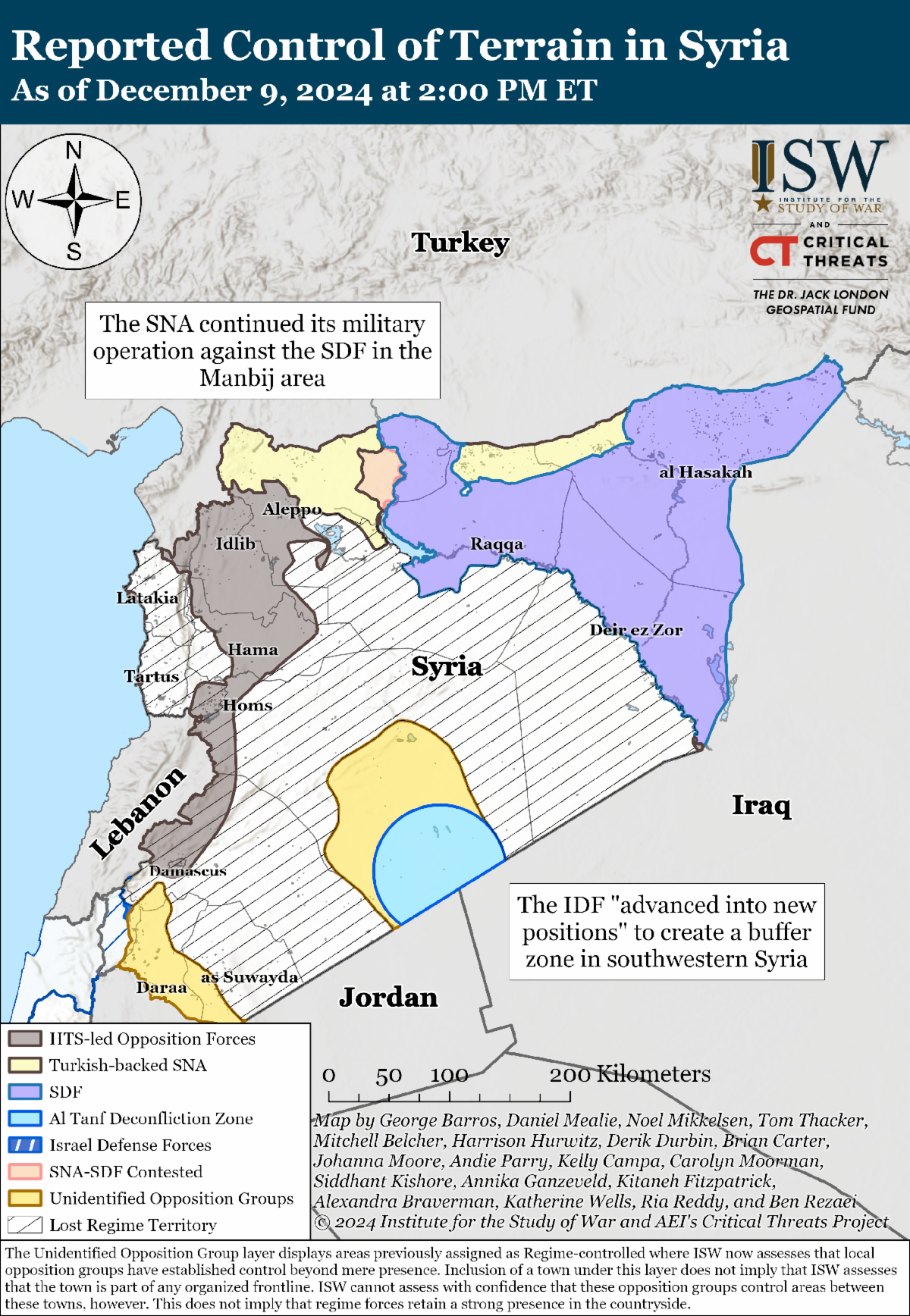Donate online or by sending a check to the Institute for the Study of War at 1400 16th Street NW, Suite #515, Washington, DC, 20036. Please consider including the Institute for the Study of War in your estate plans.
ISW is a tax-exempt organization under section 501(c)(3) of the Internal Revenue Code. Donations are tax-deductible to the extent permitted by law.
The Institute for the Study of War (ISW) is a non-partisan, non-profit, public policy research organization. ISW advances an informed understanding of military affairs through reliable research, trusted analysis, and innovative education. We are committed to improving the nation's ability to execute military operations and respond to emerging threats in order to achieve US strategic objectives. | 






 [국방부] 결혼 후 혼인신고도 하지 못한 채 입대한 고(故) 박갑성...
[국방부] 결혼 후 혼인신고도 하지 못한 채 입대한 고(故) 박갑성...
 [ISW] 이란 업데이트, 2024년 12월 8일
[ISW] 이란 업데이트, 2024년 12월 8일